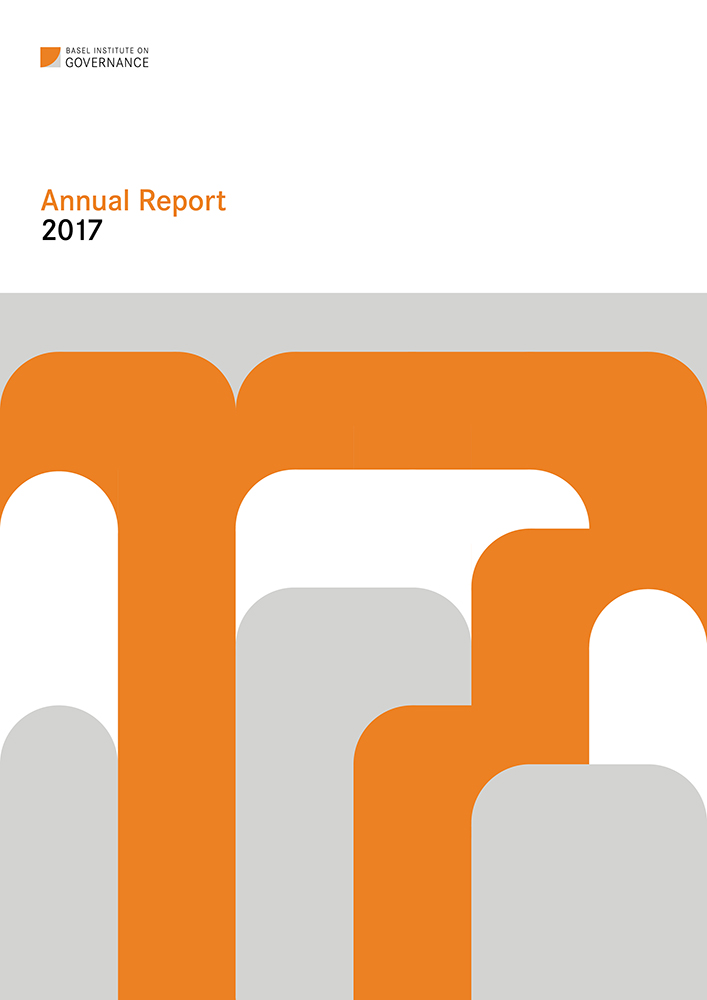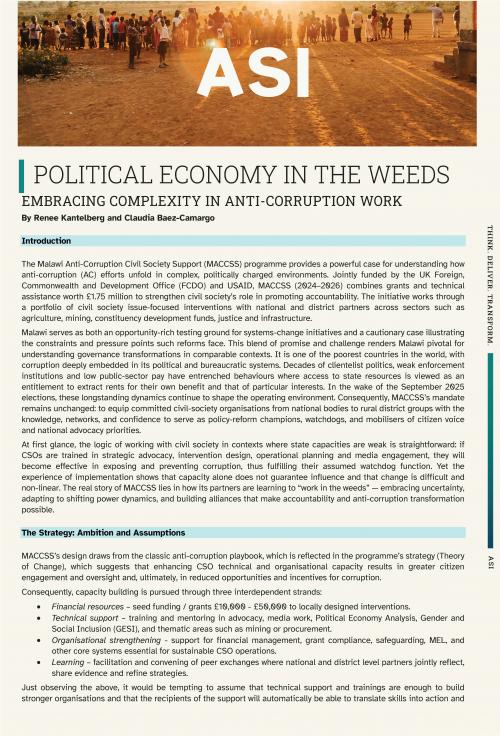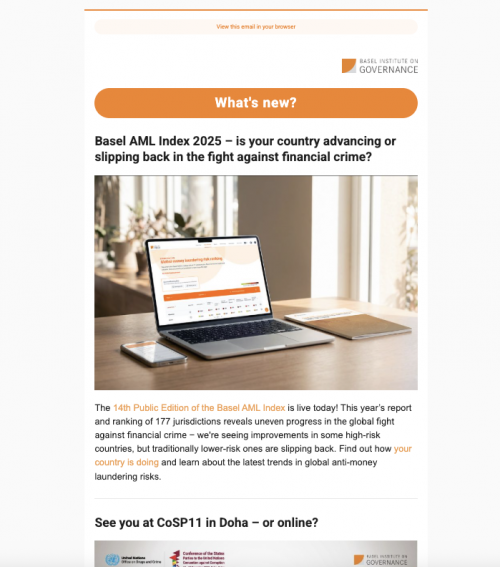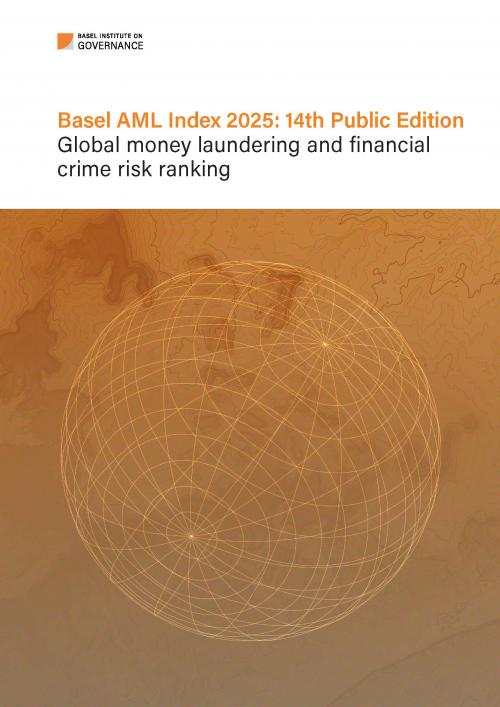Annual Report 2017
Foreword: Why do we fight corruption?
For those “in the know”, this is a rhetorical question. Corruption is bad, and we know it. Or do we really?
Thankfully, the economist-led debates in the 1990s about whether corruption is the necessary grease in the wheels of business are long behind. But we would argue that many people, including those most affected by it, still don’t fully grasp what corruption does to our world.
What’s wrong with a Head of State taking money from companies who want to win public contracts, especially if otherwise he or she seems to be running the country in an acceptable way? It seems obvious, but the connection between corruption and lack of education or public healthcare is not an automatic one for many people. Thankfully, a few real-life examples usually suffice to demonstrate it.
Taking the obvious next step of acknowledging that corruption is a direct impediment to the enjoyment of human rights already takes more convincing. But in our view, it is crystal clear: States who fail to effectively prevent and punish corruption are in direct violation of their obligations under international human rights treaties.
Our security is protected by police, and terrorism is the business of radicals – or so we think. Yet Transparency International’s 2017 Global Corruption Barometer ranks the police as the most corrupt public institution. It is said that corrupt security services were the cause for a heavily delayed response to the Westgate shopping mall attack in Kenya in 2013. What that means is that people died as a direct result of corruption. Frustration about corruption pushes young people into associating with radical groups as these offer an opportunity to vent their anger. Terrorism flourishes where corruption is rife.
Why can criminal networks engaged in illegal trafficking in humans, arms and wildlife products operate so freely? Because they can bribe their way through customs and out of courts. And when they have laundered the proceeds of their crimes successfully through the international financial system, they can use these same monies to continue their criminal enterprises.
Finally, let us not forget that when money buys votes, when money buys influence, when money buys politicians, when the media is co-opted by corrupt networks, we lose our fundamental right to participate in the destiny of our countries and consequently of our lives. Institutions of democracy, when undermined by corruption, as they sadly are to varying degrees almost everywhere in the world today, become a farce. They end up protecting rotten systems behind a pretty face.
Is this reason enough to fight corruption? We certainly think so. The international community missed a critical opportunity when the Sustainable Development Goals (SDGs) failed to list anti-corruption as one of its 17 high-level principles. We firmly believe that corruption is the root cause of most if not all hurdles to corruption, and as long as corruption prevails, achieving the SDGs will remain elusive.
Yet that does not stop us. Our global team will continue pursuing our mission of a world free from corruption, working hand in hand with our partners from governments and non-state actors. Using tangible results and impact from our interventions, we will tirelessly advocate for a greater recognition of the detrimental effects of corruption to societies all around the world. Continue to work with us and help build a world with more peace, equality, justice and prosperity.
Mark Pieth, President of the Basel Institute on Governance
Gretta Fenner, Managing Director of the Basel Institute on Governance
Links and other languages




